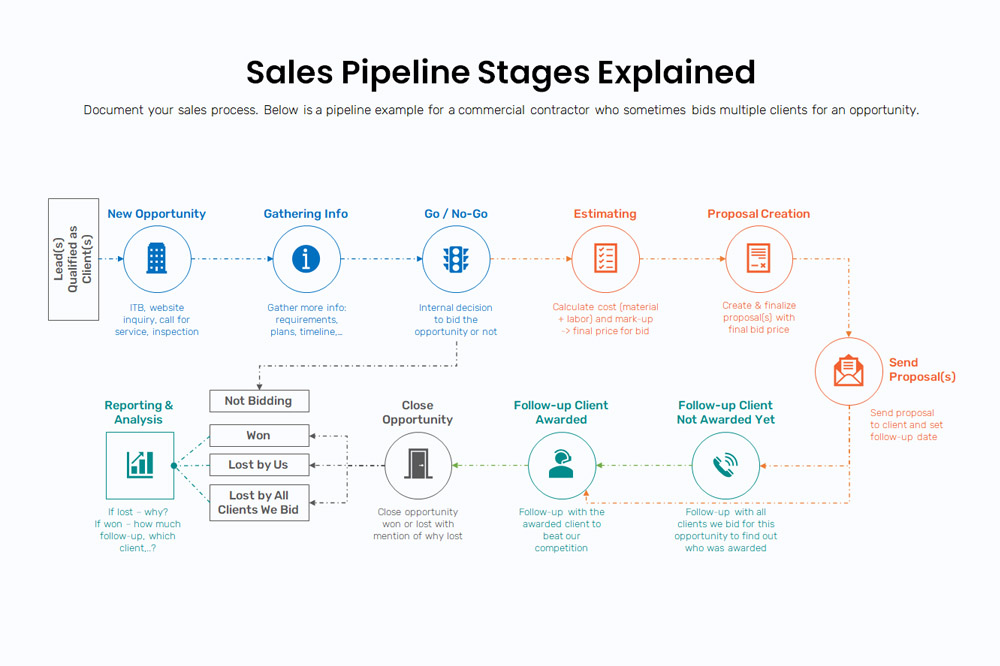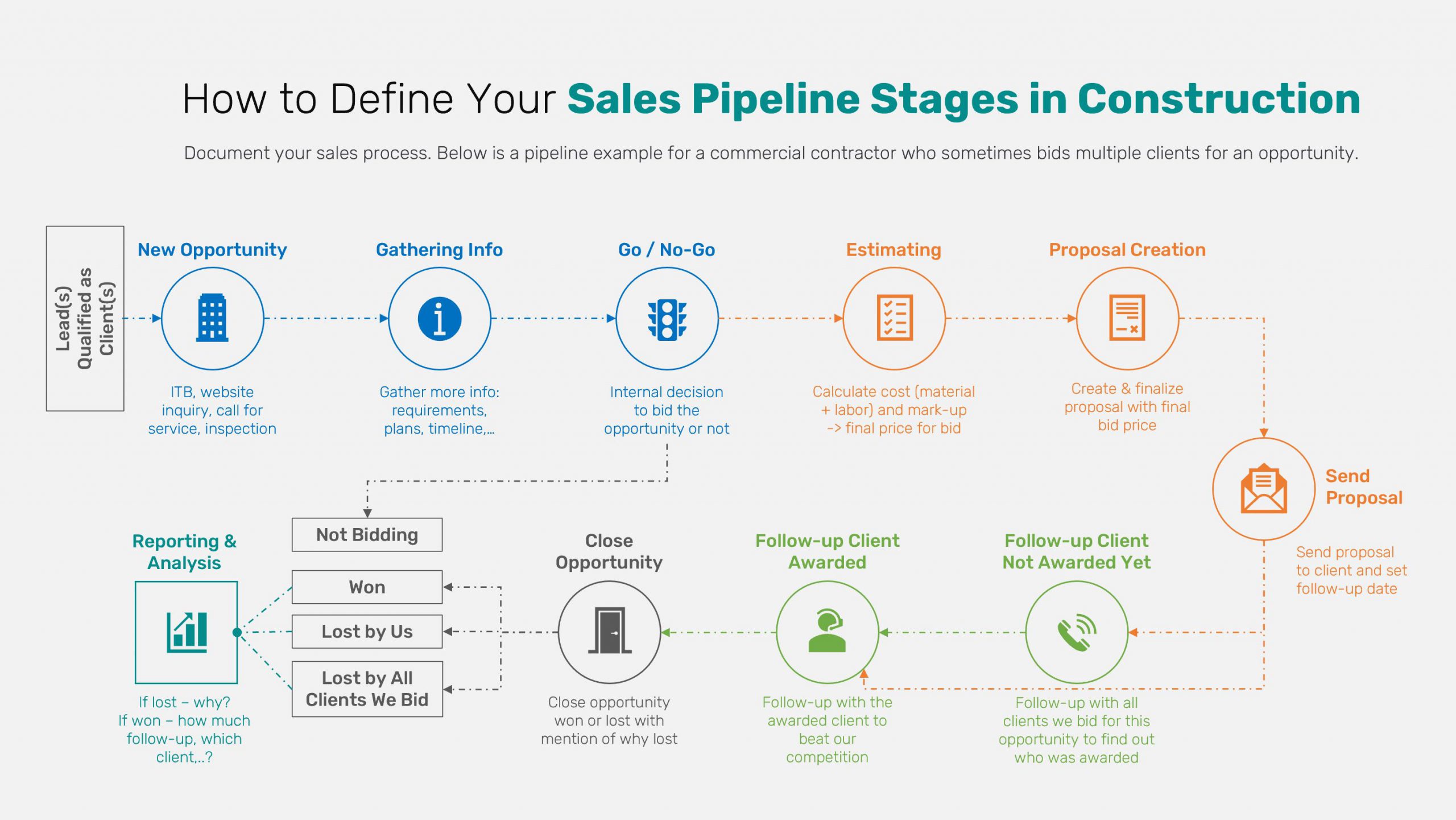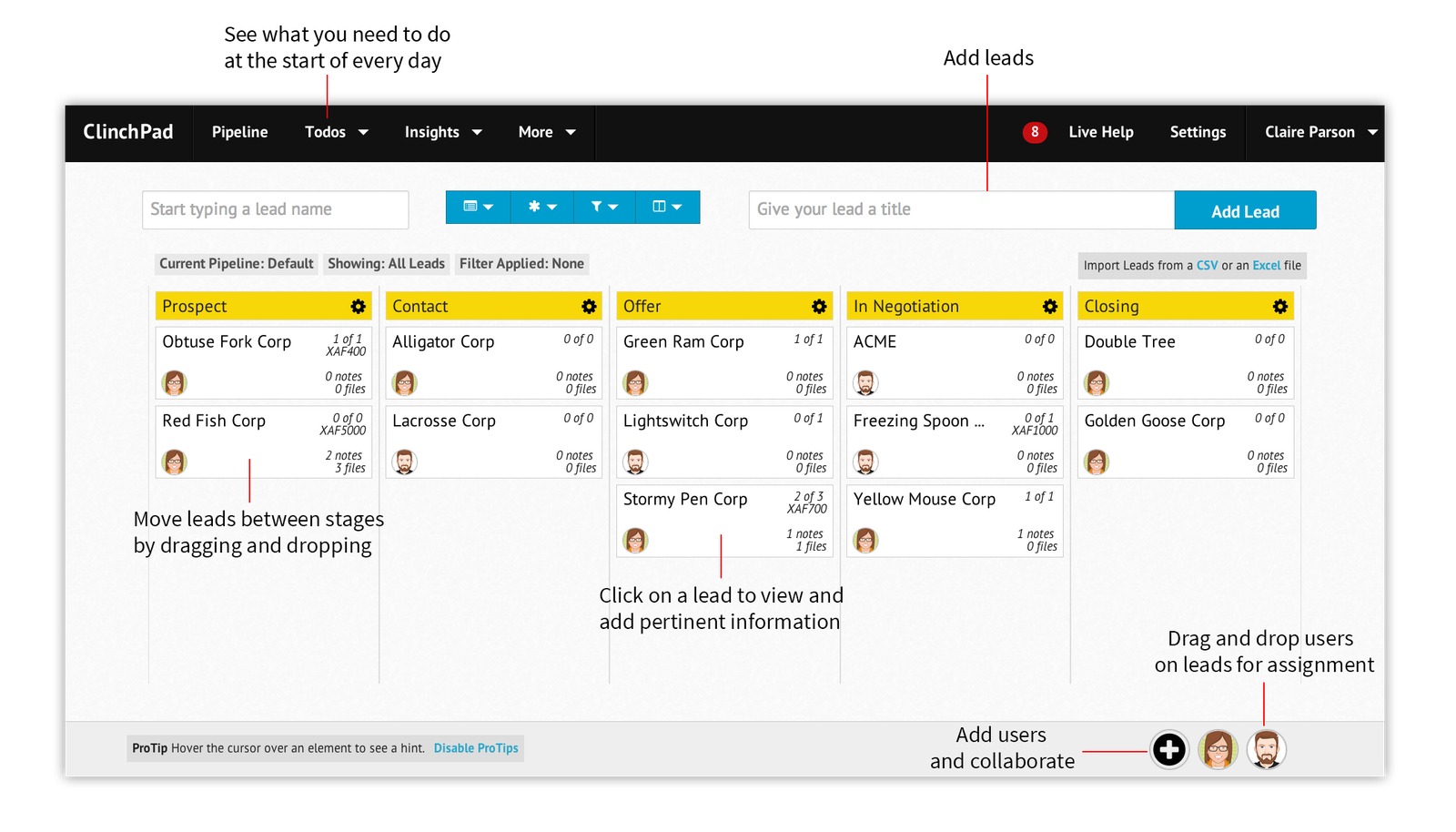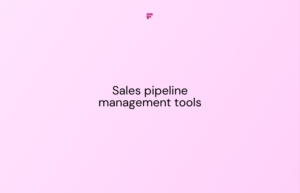Implementing sales pipeline management software in your business is a straightforward process that involves selecting the right software, customizing it to fit your needs, and training your team on how to use it effectively. With the help of this software, you can easily track and manage your sales pipeline, improve your sales forecasting accuracy, and streamline your sales process.
These benefits can ultimately lead to increased sales and revenue for your business. We will explore the steps you need to take to implement sales pipeline management software in your business successfully.

Credit: idealcrm.app
Why Sales Pipeline Management Software Is Important
Sales pipeline management software is essential for businesses looking to streamline their sales processes. By implementing this software, businesses can effectively track and manage leads, opportunities, and sales activities, resulting in improved efficiency and increased sales revenue.
Increase Sales Efficiency
Implementing sales pipeline management software in your business can significantly increase sales efficiency. This software helps streamline the entire sales process, from lead generation to deal closure. With the help of automation and centralized tracking, your sales team can focus on building relationships with potential customers and closing deals rather than spending valuable time on manual administrative tasks.
This software allows your team to easily track and manage deals at every stage of the sales cycle. It provides a visual representation of each deal’s progress, making it easier to identify bottlenecks and take necessary actions. By providing clear insights into your team’s performance and the status of each deal, this software allows you to make data-driven decisions and optimize your sales process for maximum efficiency.
Improve Sales Forecasting
Accurate sales forecasting is crucial for any business. It helps you predict future sales, allocate resources effectively, and set realistic revenue goals. Sales pipeline management software plays a vital role in improving sales forecasting accuracy.
By tracking each deal’s progress through the sales pipeline, this software provides real-time data that contributes to more accurate sales forecasts. With access to historical data, trends, and other crucial insights, you can identify patterns and make informed predictions about your future sales performance. This allows you to optimize your strategies, allocate resources wisely, and adjust your sales targets accordingly.
Enhance Customer Relationship Management
A strong customer relationship is the backbone of any successful business. Sales pipeline management software helps enhance your customer relationship management (CRM) efforts by providing a centralized platform to store and manage customer data.
This software allows your sales team to track customer interactions, log notes, appointments, and follow-ups. With a comprehensive overview of each customer’s journey through the sales pipeline, your team can provide personalized experiences and build stronger relationships with your clients. It also enables effective collaboration among team members, ensuring everyone is on the same page and delivering consistent and exceptional customer service.
Choosing The Right Sales Pipeline Management Software
Choosing the right sales pipeline management software is a critical decision for your business. With so many options available in the market, it can be overwhelming to identify the one that meets your specific needs and objectives. In this section, we will discuss three key factors to consider when selecting sales pipeline management software: identifying your business needs, evaluating features and functionality, and considering integration and scalability. By taking these factors into account, you can ensure that the software you choose aligns with your requirements, enhances your sales processes, and drives business growth.
Identify Your Business Needs
The first step in choosing the right sales pipeline management software for your business is to identify your unique needs. Consider factors such as the size of your sales team, the complexity of your sales processes, and the specific goals you want to achieve. Analyzing your current sales pipeline and understanding the pain points and bottlenecks will help you identify the features and capabilities required in the software. Additionally, consider any specific industry requirements or compliance regulations that your business needs to adhere to.
Evaluate Features And Functionality
Once you have identified your business needs, the next step is to evaluate the features and functionality offered by different sales pipeline management software. Look for software solutions that provide crucial features like lead management, contact management, opportunity tracking, sales forecasting, and reporting. Consider whether the software offers customization options to align with your unique business processes. It is also important to assess the ease of use and user interface as intuitive software will promote adoption and improve productivity among your sales team.
Consider Integration And Scalability
Integration and scalability are vital aspects to consider when selecting sales pipeline management software. Assess whether the software integrates seamlessly with your existing CRM system, marketing automation tools, and other essential business applications. A well-integrated software stack eliminates manual data entry and improves data accuracy across your organization. Additionally, evaluate the scalability of the software. As your business grows, you want a software solution that can accommodate increasing sales volumes and adapt to evolving business needs.
By putting the right considerations into choosing sales pipeline management software, you can streamline your sales processes, enhance efficiency, and ultimately drive revenue growth for your business. Take the time to assess your specific requirements, evaluate features and functionality, and consider integration and scalability to ensure you select a software solution that perfectly aligns with your business goals.
Implementing Sales Pipeline Management Software In Your Business
Implementing sales pipeline management software in your business is crucial for achieving efficient and effective sales operations. With the right software, you can streamline your sales processes, track leads, monitor progress, and boost your overall sales performance. This blog post will guide you through the steps to successfully implement sales pipeline management software in your business, ensuring a smooth transition and maximum benefits.
Define Your Sales Process
Before implementing sales pipeline management software, it is essential to have a clear understanding of your sales process. Define each stage of your sales cycle, from lead generation to closing the deal. Determine the key actions, milestones, and criteria for moving prospects through each stage, and document these details in a concise and accessible manner.
Set Up The Software
Once you have defined your sales process, it’s time to set up the sales pipeline management software. Choose a reliable software tool that aligns with your business needs and integrates seamlessly with your existing systems. Start by entering your essential information, such as customer data, product details, and pricing. Configure the software to mirror your defined sales process, creating custom fields, stages, and workflows that suit your business requirements.
Consider using automation features such as email templates, task reminders, and follow-up triggers to streamline your sales activities. Ensure that your software is integrated with your CRM (Customer Relationship Management) system to facilitate a seamless transfer of data between the two platforms.
Train And Engage Your Sales Team
Once the software is set up, it’s crucial to train your sales team on how to use it effectively. Provide comprehensive training sessions and workshops, explaining the functionalities and benefits of the software. Highlight how it can assist them in managing their leads, opportunities, and tasks more efficiently.
Encourage your sales team to be actively engaged with the software and consistently update their progress. Emphasize the importance of accurate data input and regular usage for accurate forecasting and reporting purposes. Regularly communicate with your team, addressing any concerns or questions they may have, and motivate them to maximize the software’s potential.
Monitor And Measure Performance
With sales pipeline management software in place, it’s crucial to monitor and measure your team’s performance. Regularly review the data and insights provided by the software to identify areas of improvement and make data-driven decisions. Utilize the reporting features to track key metrics such as conversion rates, pipeline velocity, and deal closures.
Use the software to identify bottlenecks and roadblocks in your sales process and take necessary actions to optimize performance. Adjust your strategies and allocate resources where needed to drive better results.
In conclusion, implementing sales pipeline management software is a game-changer for a successful sales operation. By defining your sales process, setting up the software, training and engaging your sales team, and consistently monitoring and measuring performance, you can leverage the power of technology to boost your sales, improve efficiency, and deliver exceptional results.

Credit: nethunt.com

Credit: idealcrm.app
Frequently Asked Questions On How To Implement Sales Pipeline Management Software In Your Business
How Can Sales Pipeline Management Software Benefit My Business?
Sales pipeline management software can help streamline your sales process, improve communication and collaboration among your sales team, provide insights into sales performance, and increase sales efficiency and productivity.
What Features Should I Look For In Sales Pipeline Management Software?
When choosing sales pipeline management software, look for features like contact management, deal tracking, activity tracking, customizable pipelines, reporting and analytics, integration with other tools, and mobile accessibility.
How Do I Implement Sales Pipeline Management Software In My Business?
To implement sales pipeline management software, start by evaluating your current sales process, setting goals for implementation, training your sales team on the software, customizing the software to fit your specific needs, and regularly reviewing and optimizing your sales pipeline.
How Can I Ensure Successful Adoption Of Sales Pipeline Management Software By My Sales Team?
To ensure successful adoption of sales pipeline management software, communicate the benefits of the software to your sales team, provide thorough training and support, address any concerns or resistance, lead by example, and regularly assess and improve the software based on feedback from your sales team.
Conclusion
Implementing sales pipeline management software in your business is a strategic move that can streamline your sales process and boost your overall sales performance. With its user-friendly interface and robust features, this software can provide valuable insights and data to help you make informed business decisions.
By effectively managing your pipeline, you can improve efficiency, increase customer satisfaction, and ultimately drive revenue growth. So, take the plunge and give your business the competitive advantage it deserves with sales pipeline management software.



